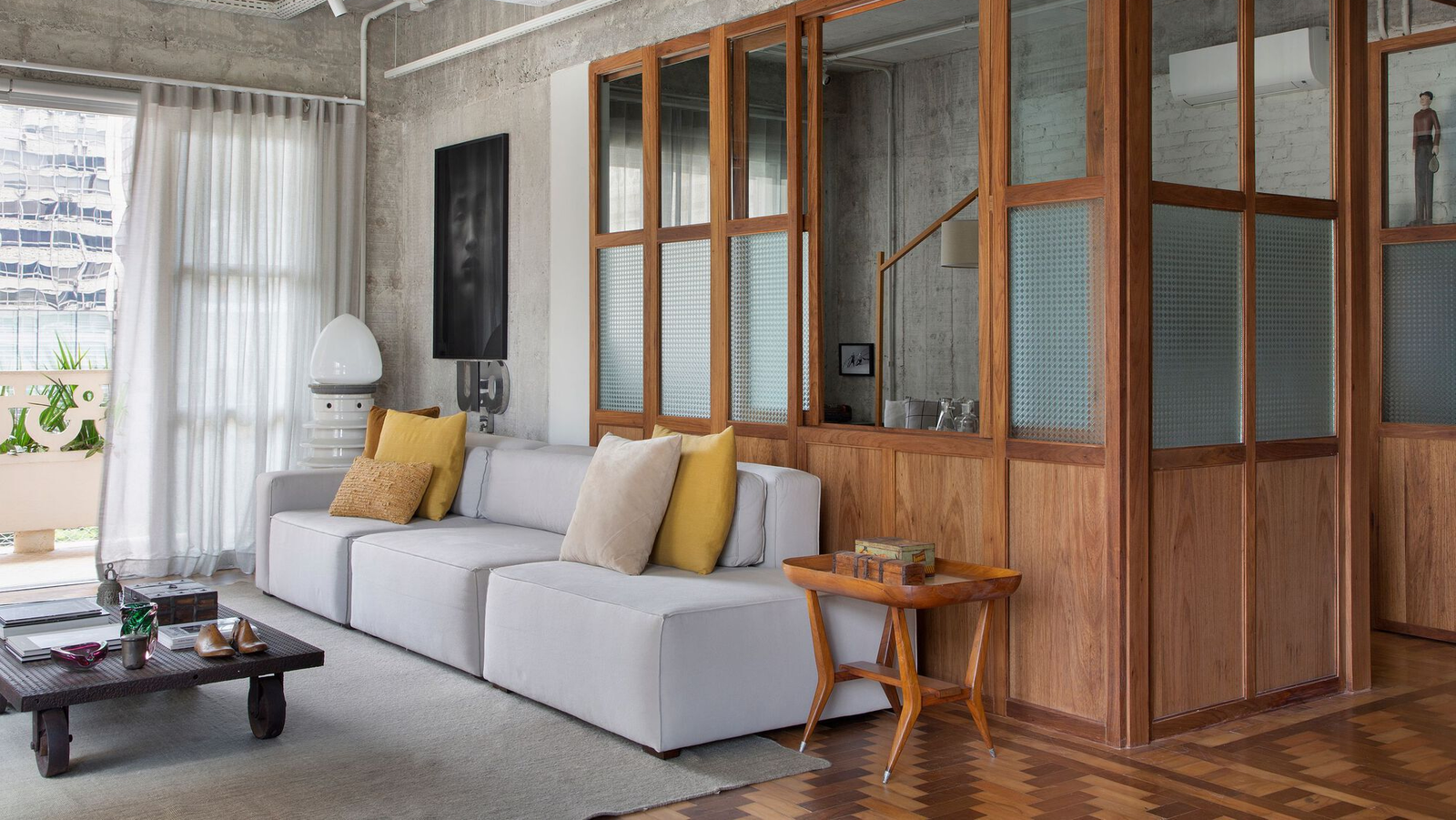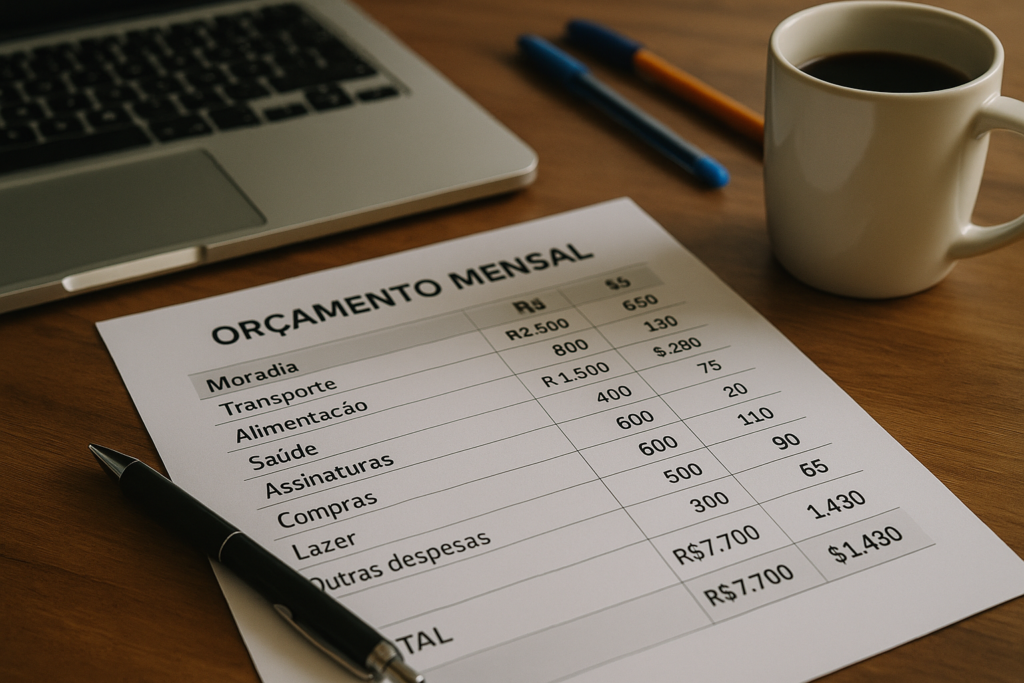Brazil, a land of vibrant culture and breathtaking landscapes, has emerged as a top destination for digital nomads. Understanding the cost of living in Brazil is crucial for those considering this South American gem. This guide provides a detailed 2025 breakdown of what to expect in terms of digital nomad expenses and how to manage your monthly budget to thrive in this diverse nation.
For many, Brazil offers significant savings compared to North American and European countries, without compromising on quality of life. Navigating the financial landscape requires careful planning to avoid unexpected costs. This article addresses key concerns for prospective digital nomads, offering insights into housing, daily expenditures, visa requirements, and healthcare. We’ll compare the cost of living in Brazil with other popular digital nomad destinations, helping you make an informed decision.
Understanding Your Digital Nomad Expenses: Housing in Brazil

Housing is a significant component of your monthly budget. Brazil offers diverse options, each with varying price points. The cost for accommodation is generally lower than in many Western countries, but depends on your chosen city and lifestyle. Understanding these variations is crucial for planning your digital nomad expenses.
Average Monthly Rent Prices in Key Brazilian Cities (2025)
Based on mid-2025 data, here’s a breakdown of average monthly rent prices for single individuals and families in some of Brazil’s popular cities [1]:
| City | 1-Bedroom Apartment (Single) | 3-Bedroom Apartment (Family) |
|---|---|---|
| São Paulo | R$ 2,700 (US$ 540 / € 500) | R$ 6,600 (US$ 1,320 / € 1,220) |
| Florianópolis | R$ 2,550 (US$ 510 / € 470) | R$ 6,650 (US$ 1,330 / € 1,230) |
| Brasília | R$ 2,725 (US$ 545 / € 505) | R$ 6,550 (US$ 1,310 / € 1,210) |
| Rio de Janeiro | R$ 2,250 (US$ 450 / € 415) | R$ 5,800 (US$ 1,160 / € 1,070) |
| Curitiba | R$ 1,950 (US$ 390 / € 360) | R$ 6,000 (US$ 1,200 / € 1,110) |
| Salvador | R$ 1,625 (US$ 325 / € 300) | R$ 5,250 (US$ 1,050 / € 970) |
Note: Exchange rates used for conversion are approximate as of August 2025: 1 US$ = R$ 5.00, 1 € = R$ 5.40.
Cities like São Paulo, Florianópolis, and Brasília have higher rental costs, reflecting their status as major hubs. However, prices are considerably lower than in major North American or European cities. For instance, a one-bedroom apartment in São Paulo is a fraction of the cost in New York City or London. This makes the overall cost in Brazil highly attractive.
Conversely, Salvador and Curitiba offer excellent value, significantly reducing your digital nomad expenses. Many rentals in Brazil come unfurnished, requiring an initial investment of R$ 2,500 to R$ 4,500 (US$ 500–US$ 900 / € 460–€ 830) for setup. This is important for your initial monthly budget.
Strategies for Reducing Housing Costs
To optimize your monthly budget for housing, consider living outside city centers. Prices in suburban districts can drop by 30% or more, offering substantial savings on your digital nomad expenses. These areas often provide safer neighborhoods and a better quality of life. Moving just 30 minutes away can drastically lower your rent, allowing you to allocate more of your monthly budget to experiences and savings.
When paying rent with foreign currency, using international money transfer platforms like Wise can make a significant difference. These platforms offer better exchange rates and lower fees, ensuring more of your money goes towards rent. This smart financial planning helps avoid unexpected costs and keeps your overall cost in Brazil in check.
Daily Living Expenses: Managing Your Monthly Budget in Brazil
Beyond housing, daily living expenses are a significant part of your monthly budget. Brazil offers an affordable lifestyle, especially for food, transportation, and healthcare. Understanding these costs is key to managing your digital nomad expenses effectively. The overall cost remains competitive.
Food and Grocery Costs: A Culinary Journey on a Budget
One delightful aspect of Brazil is access to fresh, affordable local food. Your monthly budget for groceries can be reasonable, ranging between R$ 625 and R$ 725 (US$ 125–US$ 145 / € 115–€ 135) per adult [1]. Staple items are inexpensive. For example, a dozen eggs costs around R$ 10.50 (US$ 2.10 / € 1.95), and a liter of milk is typically under R$ 5 (US$ 1 / € 0.90). Chicken and beef are also very affordable, allowing you to enjoy high-quality meals without significantly impacting your digital nomad expenses.
If you prefer to dine out, Brazil offers diverse options. A simple lunch can cost between R$ 22.50 and R$ 30 (US$ 4.50–US$ 6 / € 4.15–€ 5.55). Dinner for two at a mid-range establishment is around R$ 110 (US$ 22 / € 20.35). Street food like pastéis or coxinhas can be found for less than R$ 5 (US$ 1 / € 0.90) each. This affordability in dining contributes positively to high quality of life in Brazil, as a digital nomand.
To further reduce grocery digital nomad expenses, explore Brazil’s open-air markets (feiras). These offer fresh, seasonal produce at lower prices than supermarkets. Shopping at feiras can reduce your monthly grocery bill by up to 30%, freeing up more of your monthly budget for other activities. This local approach offers an authentic cultural experience.
Transportation: Navigating Brazil Affordably
Getting around Brazilian cities is affordable, helping keep your digital nomad expenses in check. A single metro or bus ride typically costs around R$ 4.50 (US$ 0.90 / € 0.85) [1]. A monthly public transport pass ranges from R$ 150 to R$ 200 (US$ 30–US$ 40 / € 27.75–€ 37). This makes daily commuting a minor part of your monthly budget.
Ride-sharing services like Uber are widely available. A 5-kilometer (3.1-mile) ride usually costs between R$ 18 and R$ 22.50 (US$ 3.60–US$ 4.50 / € 3.35–€ 4.15). For digital nomads desiring more flexibility, renting a car can be a smart choice. While car ownership comes with higher digital nomad expenses like gasoline (about R$ 5.50 / US$ 1.10 / € 1.00 per liter), occasional rentals are more cost-effective for weekend getaways.
Healthcare and Insurance: Prioritizing Your Well-being
Healthcare is a critical consideration for any long-term stay. Brazil offers universal public healthcare (SUS), free for all residents, including foreigners with a visa [1]. Many expats and digital nomads opt for private health insurance to avoid delays and language barriers. This decision directly influences your digital nomad expenses related to health.
Private insurance plans start at around R$ 450 (US$ 90 / € 83) per month for young adults, rising to R$ 1,100–R$ 1,600 (US$ 220–US$ 320 / € 203–€ 296) per month for retirees [1]. A private doctor’s visit typically costs between R$ 175 and R$ 350 (US$ 35–US$ 70 / € 32–€ 65), and a dental cleaning is approximately R$ 100 (US$ 20 / € 18.50). Major cities like São Paulo and Rio de Janeiro boast excellent hospitals and clinics. When planning your monthly budget, factor in these healthcare costs, especially if you prioritize private medical services.
Additional Digital Nomad Expenses: Beyond the Essentials
Beyond primary categories, other recurring expenses contribute to your overall monthly budget. These costs vary based on lifestyle, family size, and location, but understanding them is crucial for financial planning and avoiding unexpected costs.
Internet, Mobile, and Utilities: Staying Connected and Comfortable
Staying connected in Brazil is easy and inexpensive, a significant advantage for digital nomads. High-speed internet (200 Mbps) costs approximately R$ 110 (US$ 22 / € 20) per month [1]. Mobile plans with generous data packages are also affordable, ranging from R$ 45 to R$ 75 (US$ 9–US$ 15 / € 8–€ 14) [1]. This low cost for connectivity ensures you can work efficiently in Brazil.
Utility bills for an average apartment average around R$ 350 (US$ 70 / € 65) per month [1]. In warmer regions, air conditioning can increase electricity bills. In cooler southern cities, costs are often lower. When planning your monthly budget, consider the climate’s impact on energy consumption. Using an eSIM from providers like Saily can offer a smart solution for local data plans at low rates, optimizing your digital nomad expenses.
Education for Families: Planning for the Future
For digital nomads with families, education costs are a vital consideration for the monthly budget. Public schools in Brazil are free, but instruction is in Portuguese. Many expat families opt for private or international schools, especially in major cities. The cost of private education in Brazil varies widely.
Tuition fees for private schools typically range from R$ 1,350 to R$ 3,500 (US$ 270–US$ 700 / € 250–€ 645) per month, while international institutions can start from around R$ 2,750 (US$ 550 / € 510) per month [1]. Brazilian universities often offer free tuition, even for foreign students, though Portuguese-language entrance exams are usually required. This can be a significant saving on your digital nomad expenses. Careful research into school fees is essential for your family’s monthly budget.
Leisure and Entertainment: Enjoying Life on a Budget
Brazil is renowned for its vibrant culture and beautiful beaches, and enjoying these doesn’t have to break your monthly budget. The cost of leisure and entertainment is generally affordable, allowing digital nomads to immerse themselves in local life without excessive digital nomad expenses.
A gym membership typically costs between R$ 90 and R$ 135 (US$ 18–US$ 27 / € 16.50–€ 25) per month [1]. A movie ticket is approximately R$ 27.50 (US$ 5.50 / € 5). A local beer at a bar is around R$ 9 (US$ 1.80 / € 1.65). Many cultural activities, such as concerts, beach access, and public parks, are often free or low cost. Brazilian cities frequently host cultural centers, free museums, and festivals, providing ample opportunities without significantly impacting your monthly budget. This balance of affordability and rich cultural experiences makes Brazil very appealing.
Monthly Budget Summary: A Clear Picture of Your Brazil Cost of Living
To provide a clearer picture of your monthly budget as a digital nomad in Brazil, here’s a summary of estimated costs based on different lifestyle types. These figures include housing, utilities, food, transportation, and basic healthcare, offering a comprehensive overview of your potential digital nomad expenses [1]. This summary helps in financial planning and understanding the overall cost of living in Brazil.
| Lifestyle Type | Estimated Monthly Cost (BRL) | Estimated Monthly Cost (USD) | Estimated Monthly Cost (EUR) |
|---|---|---|---|
| Minimalist (small city) | R$ 3,750–R$ 4,750 | US$ 750–US$ 950 | € 695–€ 880 |
| Comfortable Single | R$ 5,500–R$ 7,250 | US$ 1,100–US$ 1,450 | € 1,020–€ 1,345 |
| Family of Four | R$ 11,000–R$ 14,750 | US$ 2,200–US$ 2,950 | € 2,035–€ 2,730 |
Note: Exchange rates used for conversion are approximate as of August 2025: 1 US$ = R$ 5.00, 1 € = R$ 5.40.
These estimates highlight the affordability of living in Brazil. Most expats and digital nomads outside São Paulo or Rio can comfortably stay within the minimalist or comfortable single ranges. A comfortable life in a safe, medium-sized city is possible for under R$ 6,000 (US$ 1,200 / € 1,110) a month. Families can enjoy a stable lifestyle with a monthly budget of R$ 12,500 (US$ 2,500 / € 2,315) or less, depending on schooling and lifestyle. This structure of cost makes Brazil highly attractive for financial freedom.
It’s important to remember that these are averages, and your actual digital nomad expenses will depend on personal spending habits, chosen city, and lifestyle. However, with careful planning and a well-structured monthly budget, you can significantly reduce your overall cost of living in Brazil and enjoy a high quality of life.
Best Places to Live Affordably: Optimizing Your Brazil Cost of Living
Choosing the right city is paramount to optimizing your cost of living and ensuring your monthly budget stretches further. While major hubs like São Paulo and Rio de Janeiro offer vibrant cultural scenes, they also come with higher digital nomad expenses. For those prioritizing affordability, several other Brazilian cities stand out. These locations provide a balance, allowing you to enjoy the Brazilian lifestyle while keeping your digital nomad expenses in check.
Top Affordable Cities for Digital Nomads
If your goal is to maximize value and minimize your Brazil cost of living, consider these cities:
- Fortaleza: On the northeastern coast, Fortaleza offers beautiful beaches, a lively atmosphere, and lower rent prices. Its warm weather is a major draw, and the city provides essential amenities. The lower digital nomad expenses here make it attractive for longer stays.
- João Pessoa: Also in the Northeast, João Pessoa is known for its peaceful environment, scenic beauty, and safety. It boasts stunning beaches and a relaxed pace of life, ideal for tranquility and a lower monthly budget. The overall cost of living in Brazil in João Pessoa is very appealing.
- Curitiba: In the South, Curitiba is praised for its organized urban planning, strong infrastructure, and relatively low costs. It offers a European feel with a cooler climate and efficient public transportation. Despite being a large city, the overall cost in Curitiba remains manageable, making it a popular choice without the high digital nomad expenses of Rio or São Paulo.
- Belo Horizonte: The capital of Minas Gerais, Belo Horizonte is a vibrant city known for its culinary scene and nightlife. It offers a bustling urban experience at an affordable price. The city provides access to historical towns and natural beauty, without straining your monthly budget. The affordability of daily life here significantly contributes to a lower overall cost of living.
These cities offer essentials—reliable internet, good healthcare, and leisure activities—at prices considerably lower than São Paulo or Rio de Janeiro. They provide excellent infrastructure for foreigners and growing communities of expats and digital nomads. By choosing one of these locations, you can significantly reduce your digital nomad expenses and enjoy a higher quality of life for your monthly budget.
Navigating Regulations: The Brazil Digital Nomad Visa
For digital nomads considering a long-term stay, understanding the visa landscape is as crucial as managing your monthly budget and digital nomad expenses. Brazil introduced its Digital Nomad Visa (VITEM XIV) in 2022, making it easier for remote workers to legally reside and work in the country.
Key Aspects of the Digital Nomad Visa (VITEM XIV)
The Digital Nomad Visa allows foreign nationals to live in Brazil for an initial period of one year, renewable for another year at the Federal Police [2]. This provides a stable legal framework for remote workers, ensuring you can focus on your work and enjoy the Brazilian lifestyle without constant visa worries. It also helps in long-term financial planning, as you can confidently allocate your monthly budget without the uncertainty of short-term stays.
Important Note for EU Nationals: EU citizens traveling to Brazil as digital nomads for a maximum of 90 days do not require a visa. However, if you are an EU national and wish to stay longer than 90 days, you must apply for the Digital Nomad Visa [2]. For other nationalities, check specific visa requirements on the official Brazilian government portal.
Requirements and Application Process
Applying for the Digital Nomad Visa involves submitting several mandatory documents. Provide all original documents, as copies are generally not accepted, and incomplete applications will be returned [2]. This attention to detail helps avoid unexpected costs and delays.
Key documents typically required include:
- Online Visa Application Form: Fill out completely, upload documents, print, and sign. Pay attention to parents’ full names and contact information [2].
- Original Valid Passport: Valid for your entire stay with at least two blank pages [2].
- Recent Photograph: 36mm x 47mm (1.4 x 1.85 inches), taken within three months, color, front view, white background, ICAO standards [2].
- Criminal Records Extract: For applicants 18 or older, an original extract from criminal records is required. Requirements vary by country of residence [2].
- Proof of Financial Capability: Bank statements or other financial documents proving sufficient funds. Minimum income: R$ 9,000 (US$ 1,800 / € 1,650) per month, or R$ 108,000 (US$ 21,600 / € 19,800) in savings [2]. This impacts your monthly budget planning.
- Proof of Health Insurance: Valid health insurance covering your entire stay [2]. This is an essential part of your digital nomad expenses.
- Proof of Accommodation: Booking confirmation or invitation letter [2].
- Return Ticket or Proof of Onward Travel: Evidence of onward travel [2].
The consular fee is typically €120.00 [2]. Processing times vary, so apply well in advance to avoid complications. By carefully preparing documents, you ensure a smooth visa application, allowing you to focus on enjoying the cost of living in Brazil.
Conclusion: Is Living in Brazil Affordable for Digital Nomads in 2025?
For digital nomads with foreign income, the Brazil cost of living remains exceptionally attractive in 2025, offering affordability and high quality of life. The breakdown of digital nomad expenses demonstrates that with careful financial planning, a comfortable lifestyle is within reach. This makes Brazil a standout destination when comparing with other countries.
Outside major centers, daily expenses are lower, making it possible for a single person to live comfortably on a monthly budget of R$ 5,000 to R$ 7,500 (US$ 1,000–US$ 1,500 / € 925–€ 1,390). For families, a stable lifestyle can be achieved with a monthly budget ranging from R$ 12,500 to R$ 15,000 (US$ 2,500–US$ 3,000 / € 2,315–€ 2,780), including housing, healthcare, and everyday needs. These figures highlight the financial advantages of choosing Brazil, allowing you to avoid unexpected costs.
Beyond the favorable cost of living, Brazil offers an unparalleled experience: year-round sunshine, vibrant culture, natural beauty, and affordable private healthcare. These factors, combined with the Digital Nomad Visa, make it clear why more remote workers are choosing to settle here. Whether seeking financial freedom, cultural immersion, or a change of scenery, Brazil provides the right balance between quality of life and manageable digital nomad expenses.
By understanding the Brazil cost of living, from housing to visa requirements, you can make informed decisions. The key to success lies in thorough research, proactive financial planning, and embracing the local way of life. With your monthly budget optimized, you can fully immerse yourself in all that Brazil offers, creating an unforgettable chapter in your digital nomad journey.
References
[1] Expatis. (2025). How Much is the Cost of Life in Brazil in 2025? Retrieved from https://www.expatis.com/en/cost-of-life-in-brazil-for-expats-and-nomads/
[2] Portal Gov.br. (2022). Digital Nomad Visa (VITEM XIV). Retrieved from https://www.gov.br/mre/pt-br/embaixada-helsinque/consular-services/digital-nomad-visa-vitem-xiv






